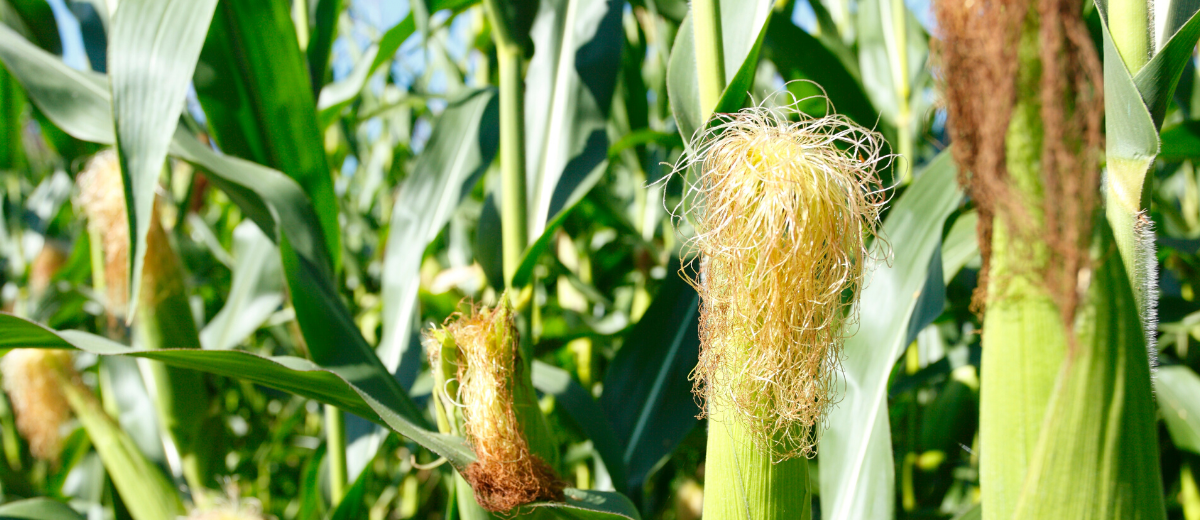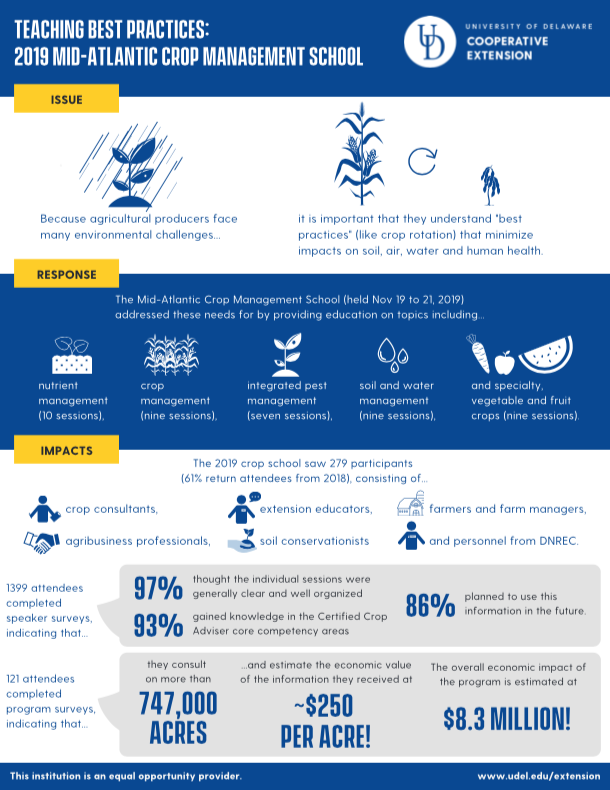
Teaching best practices: 2019 Mid-Atlantic Crop Management School (2019)


ISSUE
Agricultural production in the Mid-Atlantic Region is integral to local, regional, national and even international food systems. Maintaining and improving the productivity and competitiveness of this industry is critical for both producers and consumers. The Mid-Atlantic Region, however, also faces many environmental challenges. For this reason, is imperative that those operating within the agricultural industry in the region understand best practices to minimize negative impacts on soil, air, water and human health.
The International Certified Crop Adviser (CCA) Certification Program is a voluntary program offered by the American Society of Agronomy that provides a benchmark for practicing agronomy professionals in the United States, Canada and India. Certification recipients must have the necessary education and expertise to advise clientele on agronomic practices. There are currently over 300 active CCAs in the Mid-Atlantic Region, consisting of Delaware (DE), Maryland (MD), Virginia (VA), West Virginia (WV) and New Jersey (NJ), that must complete continuing education in four major competency areas: nutrient management, soil and water management, integrated pest management and crop management, and professional development.
Additionally, many states within the region have annual certification requirements for nutrient management (DE, MD, PA, VA, WV) and/or pesticide management (DE, MD, NJ, PA, VA, WV) that are completed via continuing education programs.
RESPONSE
The Mid-Atlantic Crop Management School was established in 1995 as a joint venture between the University of Delaware, University of Maryland, Virginia Tech, West Virginia University and the United States Department of Agriculture’s Natural Resources Conservation Service. The school addresses the continuing education and required certification needs of both the Certified Crop Adviser program and other regional agricultural clientele. The 2019 school was held from Nov. 19 to 21 in Ocean City, Maryland. Five concurrent sessions featured speakers from across the country on the latest research and implementation strategies related to nutrient management (10 sessions), crop management (nine sessions), integrated pest management (seven sessions), soil and water management (nine sessions), and an alternative session on specialty, vegetable and fruit crops (nine sessions).
IMPACT
The 2019 school drew 279 participants including crop consultants, extension educators, farmers and farm managers, agribusiness professionals, soil conservationists and personnel from the Delaware Department of Agriculture and Environmental Control. A total of 1399 completed evaluations were received regarding individual speakers and total of 121 participants completed a program evaluation.
On the speaker evaluations, 97% of participants indicated that the material presented in individual sessions was generally clear and well organized (1356 responses). In addition, 93% (1295 responses) indicated that they gained knowledge in the CCA core competency areas by attending the sessions at Crop School. Eighty-six percent (1211 responses) also indicated that they planned to use this information in the future.
On the program evaluation, crop school participants responded to the survey consult on more than 747,000 acres in the Mid-Atlantic region. Respondents estimated the economic value of the information they received at the crop school was up to $250 per acre and that the overall economic impact of the 2019 Mid-Atlantic Crop Management School is estimated to be as much as $8.3 million. Sixty-one percent of those attending in 2019 indicated that they also attended in 2018 and more than half of those returning said that they had adopted a new management practice or system in the past year.
